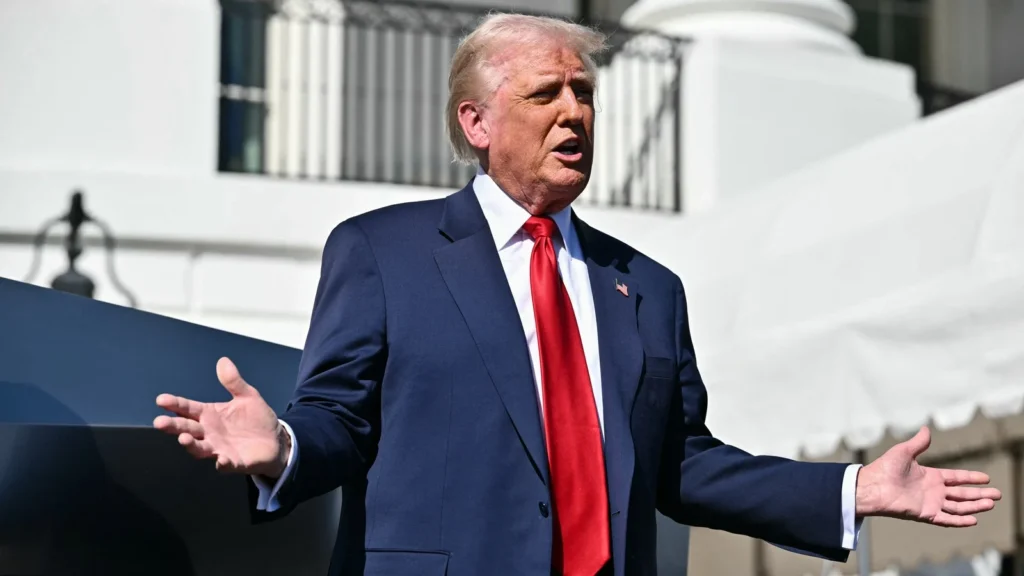President Donald Trump briefly escalated trade tensions on Tuesday by announcing a 50% tariff on Canadian steel and aluminum, only to reverse course hours later, maintaining the previously planned 25% rate. The rapid shift rattled financial markets and sparked renewed fears of inflation.

The turmoil began after Ontario Premier Doug Ford threatened a 25% surcharge on electricity exports to the U.S. in response to Trump’s tariff hike. Ford later agreed to suspend the surcharge and meet with U.S. Commerce Secretary Howard Lutnick in Washington on Thursday, prompting the White House to confirm that only the original 25% tariffs would go into effect as scheduled.
“President Trump has once again used the leverage of the American economy, which is the best and biggest in the world, to deliver a win for the American people,” said White House spokesperson Kush Desai.
Markets fluctuated throughout the day, with the S&P 500 briefly entering correction territory before rebounding following Ford’s decision and news of Ukraine’s 30-day ceasefire. Trump dismissed concerns over market volatility, insisting his policies were aimed at long-term economic growth.
Despite the tariff retreat, Trump warned that further measures, including increased duties on Canadian automobiles, could be imposed if Canada did not drop its “egregious” trade protections.
Meanwhile, as Canadian Prime Minister Justin Trudeau prepares to hand over power to his successor, Mark Carney, the escalating trade dispute has further complicated diplomatic relations. White House press secretary Karoline Leavitt condemned Ford’s initial electricity threat as “egregious and insulting,” reinforcing Trump’s push for U.S. energy independence.
The business community remains wary, with major U.S. corporations cautioning that the administration’s unpredictable trade policies could hinder consumer spending and economic stability. Amid growing concerns of a recession, investors brace for additional tariffs on automobiles and potential retaliatory measures from Canada and China.
“This is what a trade war looks like,” said Josh Lipsky of the Atlantic Council’s GeoEconomics Center. “Tit-for-tat escalation that can quickly spiral to both sides’ economic detriment.”



